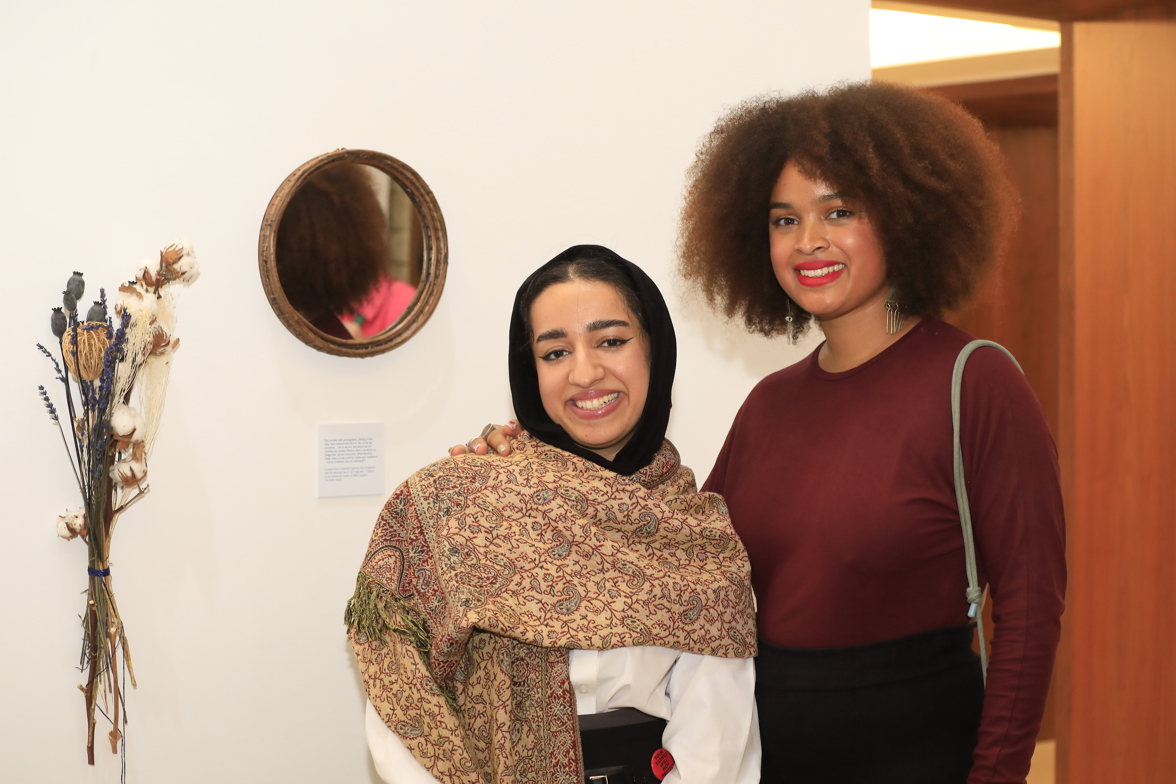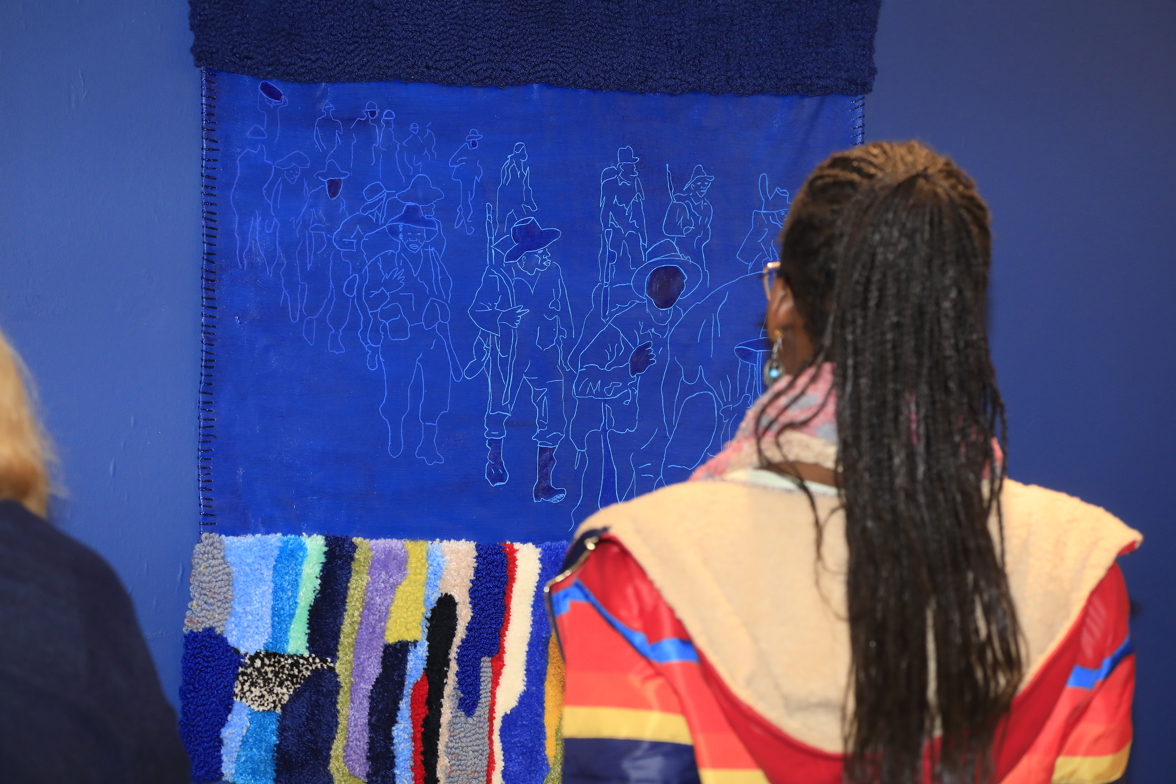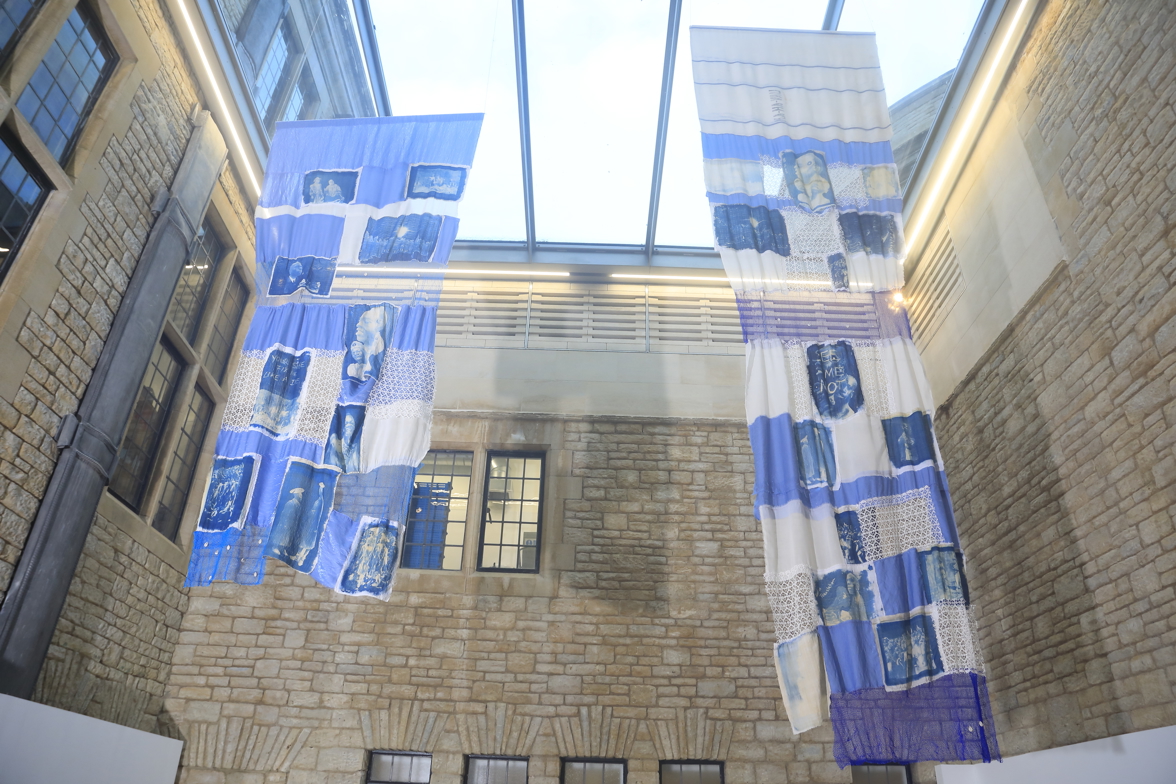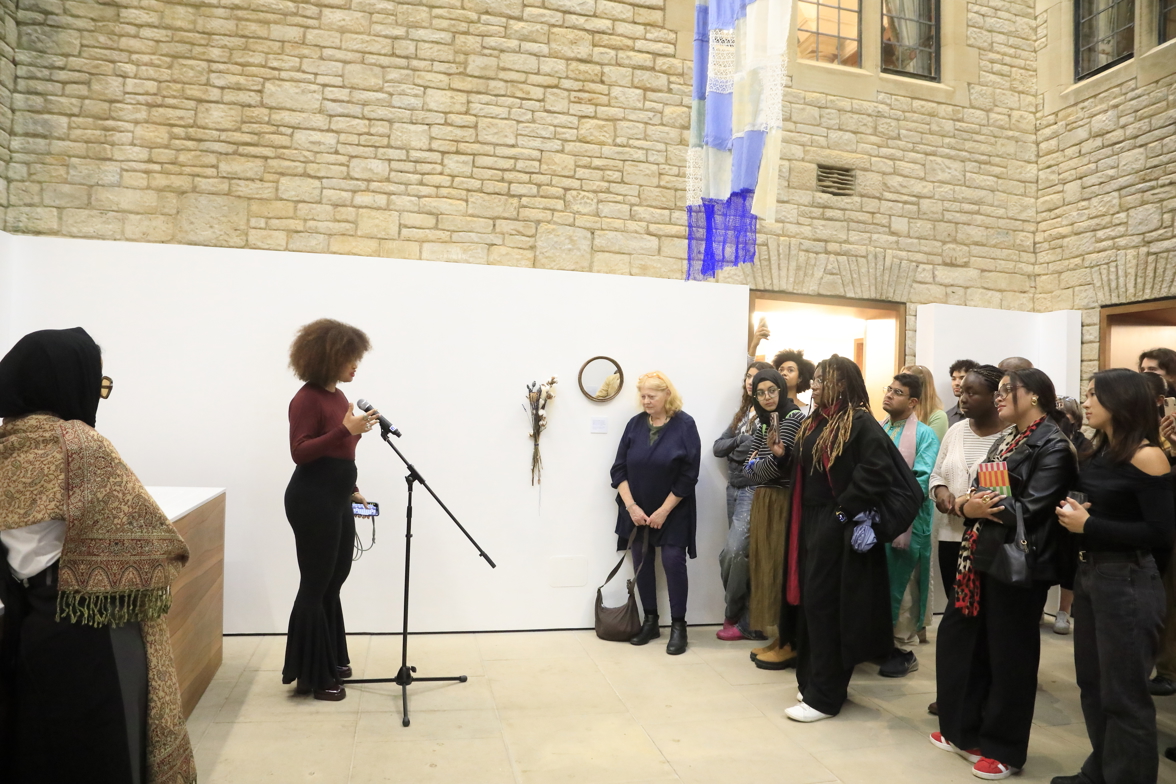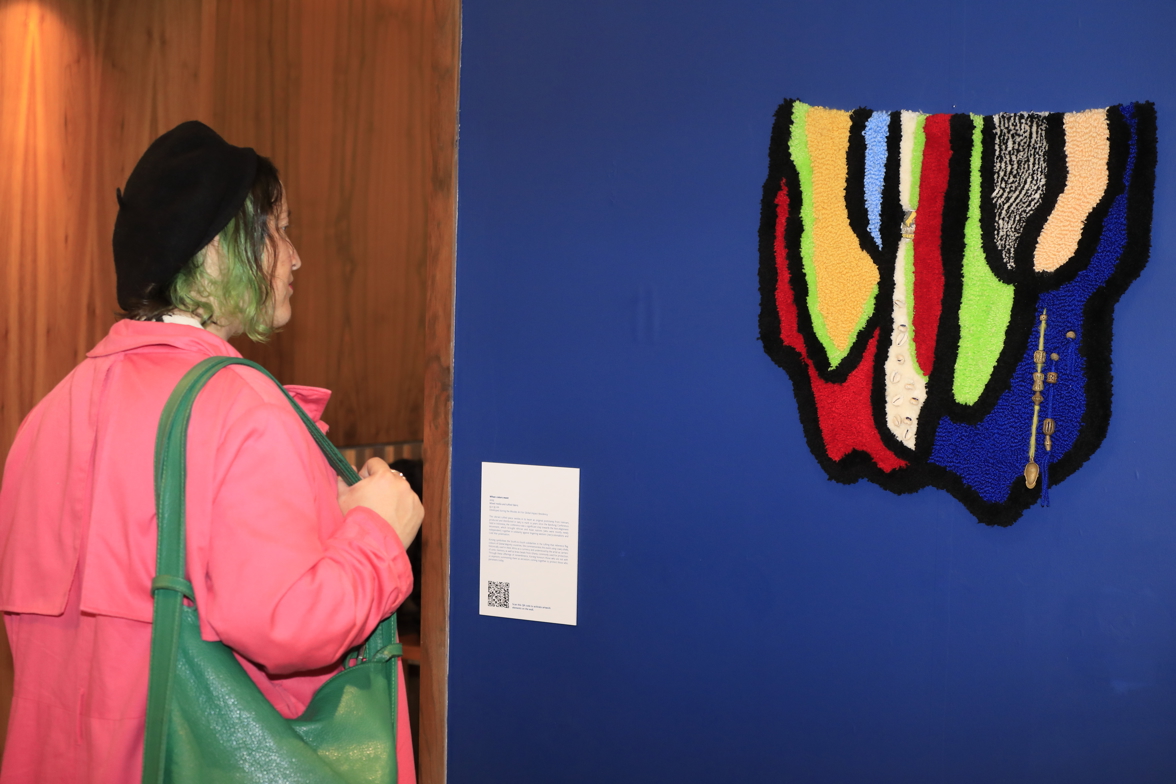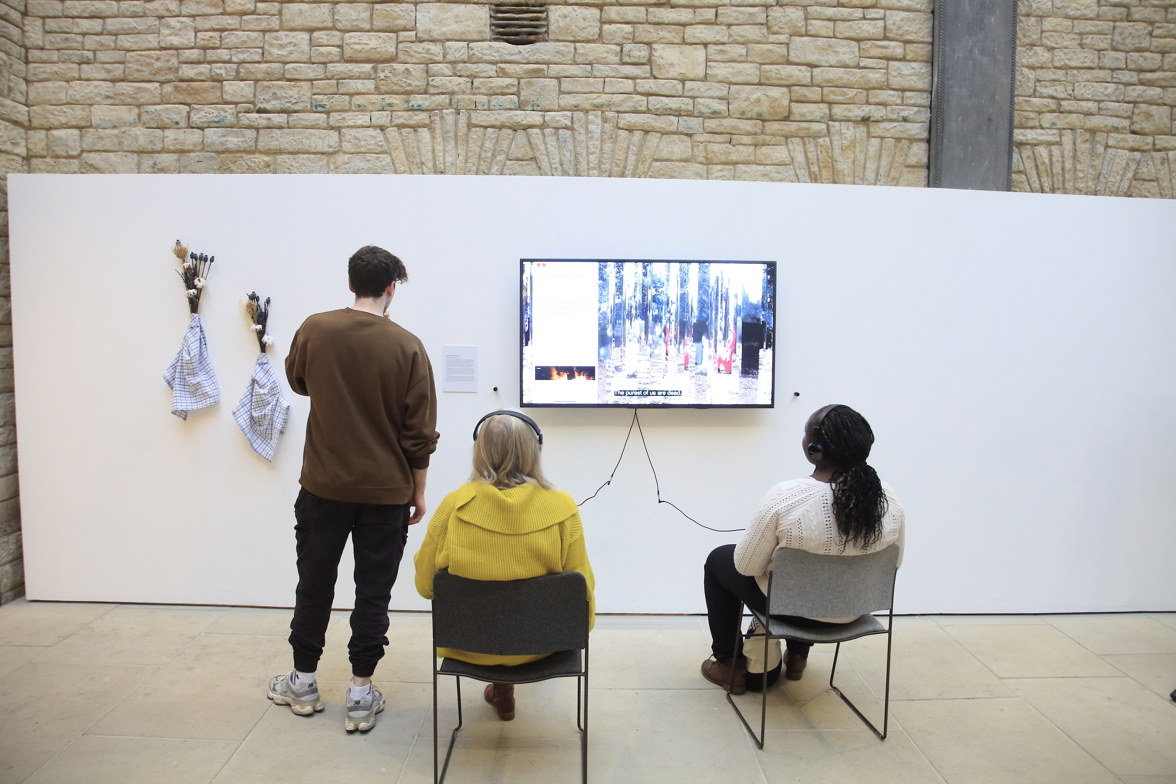This week the Rhodes Trust opened our latest exhibition, on Black poppies (& Other seeds), hosted in the S. Ann Colbourne Gallery in Rhodes House. Our Artist in Residence is Berlin-based interdisciplinary artist Rebecca Pokua Korang. The exhibition has been sensitively and creatively curated by Rhodes Scholar Maitha AlSuwaidi (UAE & Lady Margaret Hall 2021.) We welcomed over a hundred guests to hear from Korang and AlSuwaidi, introduced by Sir Rick Trainor, Interim Warden & CEO of the Rhodes Trust. The launch drew a diverse audience from the Rhodes Trust community, the wider Oxford public and beyond, and attendees were keen to mingle and discuss the artworks together.
Responding to the theme of 'Radical Joy,' Korang centres the stories of Black soldiers in the Second World War, in particular the Tirailleurs Sénégalais, colonial troops recruited by the French from their West African colonies, and soldiers recruited by the British from East and West Africa to fight against the Japanese as part of the Burma Campaign.

